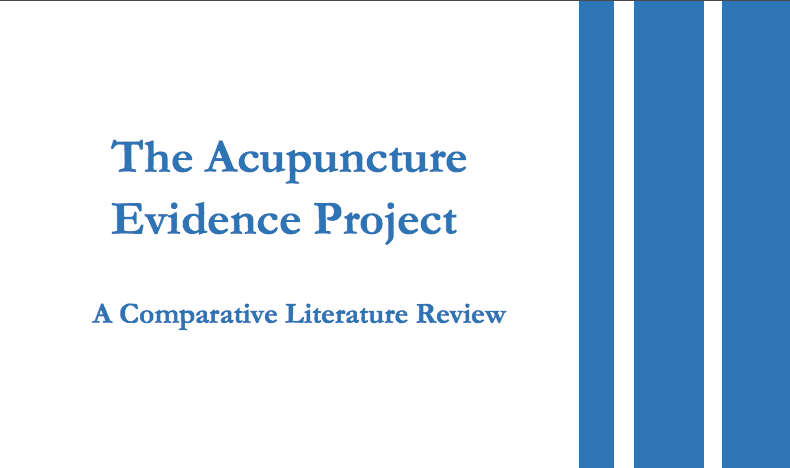Although acupuncture has been practiced for thousands of years, the evidence for its effectiveness has only begun to be assembled over the past few decades. The Australian Acupuncture and Chinese Medicine Association Ltd (AACMA), identifying the need for an updated review of the evidence with greater rigor than was possible in the past, commissioned The Acupuncture Evidence Project. The AEP searched the literature with a focus on systematic reviews and meta analyses, the highest form of evidence available, sorting the evidence to identify the conditions for which acupuncture has been found to be most effective. They also looked for evidence of acupuncture’s safety and cost-effectiveness and reported how the evidence for acupuncture’s effectiveness has changed over an eleven-year time-frame.
Efficacy of Acupuncture Across Various Conditions
Overall, the study found evidence for the effectiveness of acupuncture for 117 conditions, with stronger evidence for some conditions than others. Strong or moderate evidence supported the effectiveness of acupuncture for almost fifty conditions, including IBS, many varieties of musculoskeletal pain, post-operative nausea and vomiting, some types of headaches, PTSD, obesity, and stroke, as well as the aftereffects of stroke. It was found to be particularly safe and cost-effective compared to other potential treatments for allergic rhinitis and migraine. Evidence was weakly positive for acupuncture as a treatment for dozens of other conditions ranging from Parkinson’s and Alzheimer’s to multiple sclerosis and traumatic brain injury. The study found that more research was required to determine its effects on epilepsy, as well as on cocaine, alcohol, and long-term nicotine dependence.
Are you interested in becoming a certified acupuncture professional?
Visit the links below to explore our specialized acupuncture programs at a campus near you:
Emerging Evidence and Misconceptions Addressed
The level of evidence also increased over the period of the study for 24 conditions. Placebo-controlled clinical trials consistently underestimate the true effect size of acupuncture (which means that acupuncture is more effective than the type of trials used in this review show), yet they have still demonstrated National Health and Medical Research Council (NHMRC) Level I evidence for the effectiveness of acupuncture for 117 conditions. It is no longer possible to say that the effectiveness of acupuncture is because of the placebo effect, or that it is useful only for musculoskeletal pain.
Featured Posts:

